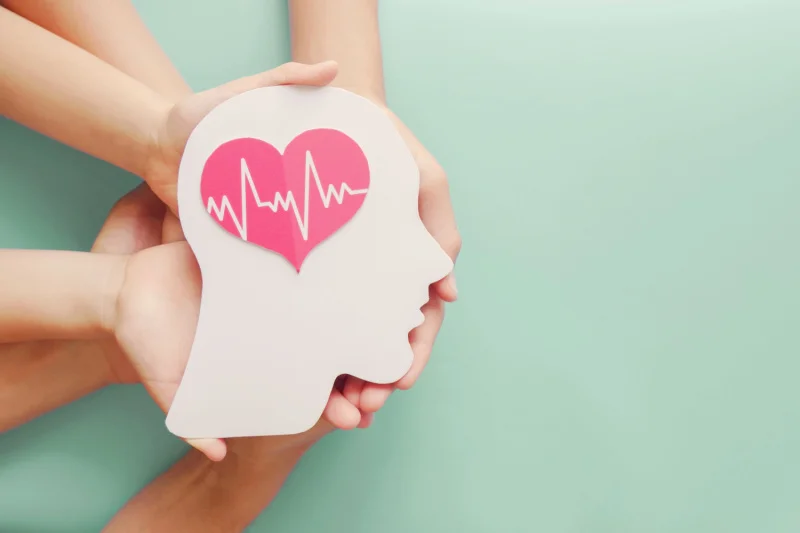Understanding Mental Health: What It Is, Signs of Illness, and Seeking Treatment
You may have heard people say that our country is experiencing a mental health crisis. But what exactly is mental health? And how do you know if you should seek help?
Unfortunately, in many families and communities, there is still a significant stigma attached to seeking help for mental health issues. Additionally, many individuals may falsely believe that they do not need help or that no one will be able to assist them.
However, nothing could be further from the truth. There is nothing wrong with needing help. There is nothing wrong with seeking help. Most importantly, there are many people and organizations out there that can help.
On this page, we will discuss what mental health is, common mental health conditions, and treatment options so you can make the best decision for your own mental wellness.
What Is Mental Health?
Mental health is emotional, psychological, and social well-being. A person’s mental health can impact how they feel, think, and behave. Mental health impacts virtually every aspect of a person’s life, from the quality of their interpersonal relationships to the choices they make.
When a person is in good mental health, they are more likely to be in good physical and spiritual health. They also perform better academically and professionally and contribute more to society. Mental health is considered so critical to a person’s well-being that the World Health Organization considers it a basic and fundamental human right.
Unfortunately, not everyone is in great mental health. In fact, quite the opposite is true. Mental health issues are some of the leading and contributing causes of death.
While every individual goes through cycles where their mental health is better or worse, some individuals struggle more than others. For some, this is due to their life circumstances, such as the level of stress or responsibility in their lives. For others, this is the result of a mental health disease, more commonly referred to as a mental health condition or mental health disorder.
While every mental health disorder is serious, some can be significantly more severe and disruptive than others.
Mental Health Conditions and Their Prevalence

Mental health conditions are very common. An estimated 26% of Americans have a diagnosable mental health condition in any given year, and a significantly higher percentage will experience at least one in their lifetime.
Here are some of the most common mental health conditions, their prevalence, and symptoms:
- Depression: Affects 9% to 20% of the U.S. population, with women approximately twice as likely to develop depression than men.
- This includes major depressive disorder (MDD) and dysthymia (persistent depressive disorder).
- Depression is typified by feelings of sadness, low mood and energy, feelings of hopelessness, and thoughts of suicide.
- Anxiety: Affects 10% to 20% of the U.S. population.
- It includes panic disorder, obsessive-compulsive disorder (OCD), post-traumatic stress disorder (PTSD), generalized anxiety disorder (GAD), and various phobias.
- Anxiety is typified by constant worrying and fear, severe dislike, fear of, or avoidance of certain triggers, and a variety of related symptoms.
- Personality disorders: Affect 9% to 10% of the population, with approximately 1% to 2% of the population suffering from borderline personality disorder specifically.
- Personality disorders are defined as lasting patterns of inner experience/thoughts and behavior that deviate significantly from what is expected.
- Borderline personality disorder is typified by patterns of instability in mood, behavior, self-image, and functioning.
- Attention-deficit/hyperactivity disorder (ADHD): Affects 8% to 10% of the U.S. population, with men about three times more likely to experience it than women.
- ADHD is characterized by difficulty paying attention, difficulty controlling behavior, and abnormally high levels of physical/mental activity.
- Bipolar disorder: Affects 2% to 4% of the U.S. population.
- Bipolar disorder is typified by alternating periods of depression and mania or hypomania. Depressive episodes are similar to depression, while manic or hypomanic episodes are typified by heightened mood, high energy, poor decision-making, and low impulse control.
- Eating disorders: Affect 0.3% and 1.5% of the U.S. population, with women two to three times more likely to experience an eating disorder than men.
- Different eating disorders will impact sufferers differently, but most are typified by obsessions with food and body weight and shape.
- Schizophrenia: Affects 0.25% to 1% of the U.S. population.
- Schizophrenia is characterized by disruptions in the thought process, failures of perception that may cause hallucinations, and issues with emotional responsiveness and social interactions. Schizophrenia is widely considered to be among the most crippling and challenging mental health conditions.
What Influences Mental Health?

Virtually everything can influence mental health, and what significantly impacts the mental health of one individual may not impact another’s mental health in the same way.
Because the factors that can influence mental health are essentially unlimited, it is easier to put them into broad categories:
- Biology – Includes genetics, brain chemistry, gender, body composition, medical health, body functioning, weight, and age.
- Life experiences – Includes trauma, abuse, healthy relationships, unhealthy relationships, and negative and positive experiences.
- Family history – Includes the presence of mental illness in family members.
- Lifestyle – Includes diet, physical activity, substance abuse, profession, education level, finances, and recreational activities.
- Environmental factors – Includes residence, family members, social circle, governmental regulations, toxins in the environment, and social and political climate.
- Medication – Includes any medications that the patient is taking.
- Intervention – Includes any treatment that the patient is receiving or has received, including therapy, counseling, and life skills training.
Recognizing Signs of Mental Illness
Every individual is unique, and so is every mental illness. The signs of mental illness will vary dramatically from condition to condition and between individuals with the same condition. This can make recognizing the signs of mental illness challenging.
Many individuals actively work to hide the signs of their mental illness, making it even harder to determine if they need help. However, because mental illness can dramatically decrease the quality of an individual’s life, and possibly even end it, recognizing the signs is critical.
While it is best to research specific mental illnesses to learn more about their signs, it is possible to highlight some signs that are frequently present. Examples of common signs of mental illness that are easy to recognize include:
- Suicidal thoughts or attempts.
- Frequent expression of feelings of sadness or hopelessness.
- Difficulties at school or work.
- Extreme or inappropriate emotional reactions.
- Problems in social or interpersonal relationships.
- Declining physical appearance.
- Frequent or severe mood swings.
- Lack of interest in previously enjoyed activities.
- Strange, erratic, or aberrant communication or behavior.
- Seeming to react to or talk about things or people that aren’t there.
- Believing things that are not true.
Debunking Common Misconceptions About Mental Illness

We have certainly made progress toward destigmatizing mental illness so those with mental health conditions feel more comfortable discussing their issues and seeking help. However, we still have a long way to go.
There are many misconceptions about mental illness that need to be debunked, including:
There is something “wrong” with a person with mental illness.
Just as there isn’t something “wrong” with a person with a physical or medical illness, there isn’t anything “wrong” with a person with mental illness. They simply have a disease that needs treatment.
People with mental illness are dangerous or violent.
According to psychiatric mental health nurse practitioner (PMHNP) Valerie Puffenberger, the vast majority of individuals with mental illness are not violent and are more likely to be victims of violence.
Mental illness is only something that happens in other cultures or communities, not my own.
Although some mental health conditions appear more frequently in some cultures and communities than others, mental illness is very common among people from all cultures and backgrounds.
My mental illness does not need treatment.
If your mental illness impacts your life in any way, even if it is just causing you to enjoy your life less, it needs treatment. If your mental illness is significantly and negatively impacting your life, it needs immediate treatment.
I’m doing fine.
The vast majority of people who lose their lives due to mental illness have repeatedly told others and themselves that they were doing fine. It’s OK to not be fine and to seek treatment so that you eventually, truly are.
There isn’t any help for me/nothing will change for me.
There are many thousands of mental health professionals out there waiting to help you. Every year, millions of Americans get help for mental illness and change their lives for the better. You can, too.
Strategies for Enhancing Mental Health
There are many different strategies to enhance your mental health.
Puffenberger shares some of her favorites:
- Engage in regular physical exercise. This has been shown to have positive effects on mental well-being.
- Practice stress-reduction techniques such as mindfulness meditation or deep breathing exercises.
- Maintain a balanced diet and get adequate sleep.
- Establish and maintain a support network of friends, family, or support groups.
- Engage in activities that bring joy and fulfillment, such as hobbies or creative outlets.
Here are some additional strategies to consider:
- Practice gratitude.
- Limit screentime.
- Volunteer or help others.
- Limit alcohol and drug use.
- Practice self-compassion.
- Set realistic goals.
- Get outside and enjoy nature.
- Practice positive self-talk.
- Stay hydrated.
- Focus on growing your career.
Seeking Professional Help
If you or someone you love is struggling with mental health or substance use, it is important that you find help as soon as possible. Not only do mental health and substance misuse dramatically decrease the quality of life for those that they affect, they are often fatal.
Fortunately, Legacy Healing Center is here to help. We take a holistic approach to healing patients’ minds, bodies, and spirits through the use of proper medication, one-on-one counseling, and peer support.
Call 888-534-2295 today to speak with one of our treatment staff about how we can assist you on your path to mental wellness.
Mental Health FAQs
What is the significance of mental health in our lives?
Mental health has incredible significance on an individual’s life and, in fact, impacts virtually every aspect of it. A person’s mental health influences how they think, feel, and act, and therefore has a major impact on the outcomes and results they attain.
In fact, mental health is probably the single biggest factor in how satisfied an individual is with their life and the outcomes of their life.
How can I identify signs of mental health issues in myself or others?
The best way to identify the signs of mental health issues in yourself and others is to study them and become well-versed. Because every mental condition is different, it is important to learn about the specific signs of a particular mental health condition.
In general, it is important to be on the lookout for aberrant or abnormal behavior, or behavior that is indicative that a person is experiencing something that is not expected.
What are some effective self-care practices to improve mental health and well-being?
Most self-care practices will improve mental well-being. Some examples include:
- Improving one’s health through physical activity, proper nutrition, and adequate sleep.
- Improving one’s physical appearance through self-maintenance, cosmetic changes, and style changes.
- Reducing stress through relaxation, mindfulness, and life changes.
- Maintaining a healthy and effective personal schedule.
- Getting help when needed, whether for mental health issues, substance misuse, family problems, or anything else.
How can I support a friend or family member struggling with mental health challenges?
The best way to support a friend or family member struggling with mental health challenges is to be there for them. Take the time to listen to them and try to understand what they are going through. Help them find professional help and, if necessary, help them attend sessions. Get educated on the specific challenges that they are going through. Try to use appropriate language when possible. Most importantly, make sure that they know that you are there for them and that they have your full love and support.
Where can I seek professional help and resources for mental health concerns?
There are many places where you can seek professional help and resources for mental health concerns. If you have a primary care provider, start by speaking to them.
Additional places to ask for help include:
- Local governmental organizations, such as county health agencies or hospitals.
- Religious organizations, such as churches or synagogues.
- Charitable organizations.
- Psychiatrists and psychologists.
- Mental health and substance abuse rehab facilities.
If you or someone you love is battling mental health or substance abuse issues and want to talk to someone today about treatment options, call 888-534-2295 to speak with a treatment worker at Legacy Healing Center.
Sources
- Substance Abuse and Mental Health Services Administration. (2023). What Is Mental Health?
- Centers for Disease Control and Prevention. (2023). About Mental Health.
- World Health Organization. (2022). Mental Health.
- Johns Hopkins Medicine. (n.d.). Mental Health Disorder Statistics.
- National Institute on Mental Health. (n.d.). Statistics.
- National Alliance on Mental Illness. (2023). Mental Health by the Numbers.






